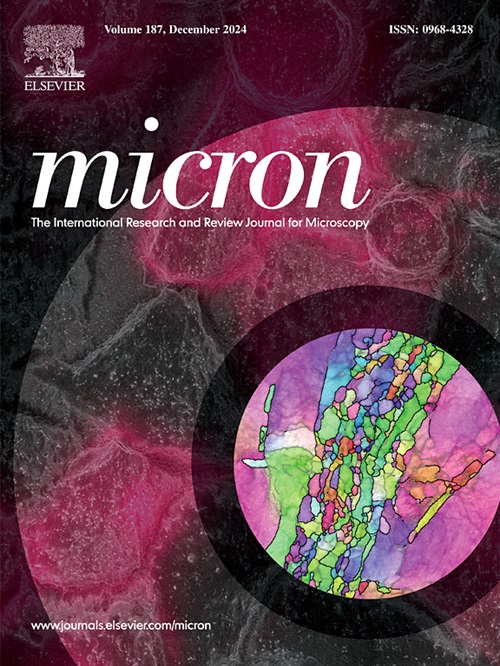Adaptive AFM image reconstruction through frequency coefficient selection based on block compressed sensing
IF 2.2
3区 工程技术
Q1 MICROSCOPY
引用次数: 0
Abstract
Atomic force microscope (AFM) is a valuable instrument for nano-scale imaging. Traditional AFM demands long time to obtain AFM images due to point-by-point imaging. AFM based on compressed sensing (CS-AFM) is able to obtain AFM images by reconstructing from incomplete measurement. Block compressed sensing (BCS) further shortens the reconstruction time but focuses on the topography of samples, which loses necessary frequency information. Different subblocks exhibit various characteristics by sparse transformation. In this paper an adaptive frequency coefficient selection method based on BCS is proposed to enhance reconstruction quality. We focus on the frequency domain of the AFM image, applying sparse transformation to obtain the corresponding frequency coefficients. We then select partial coefficients from all frequency components as the feature information for each subblock during reconstruction, followed by an inverse sparse transformation to obtain the final reconstructed image. The proposed method outperforms both iterative selection-based BCS and ordinary BCS, achieving the highest PSNR and SSIM values across various sampling ratio while maintaining comparable reconstruction times, which verifies its ability to fast reconstruct AFM images with high quality.
基于块压缩感知的频率系数选择自适应AFM图像重建
原子力显微镜(AFM)是一种有价值的纳米成像仪器。传统的原子力显微镜是逐点成像,需要较长的时间才能获得AFM图像。基于压缩感知的原子力显微镜(CS-AFM)通过对不完全测量数据进行重构,获得原子力显微镜图像。块压缩感知(BCS)进一步缩短了重建时间,但主要关注样本的地形,从而丢失了必要的频率信息。不同的子块通过稀疏变换表现出不同的特征。为了提高重建质量,提出了一种基于BCS的自适应频率系数选择方法。我们关注AFM图像的频域,应用稀疏变换得到相应的频率系数。然后,我们从所有频率分量中选择偏系数作为重建过程中每个子块的特征信息,然后进行反稀疏变换以获得最终的重建图像。该方法优于基于迭代选择的BCS和普通BCS,在不同采样比下获得最高的PSNR和SSIM值,同时保持相当的重建时间,验证了其快速高质量重建AFM图像的能力。
本文章由计算机程序翻译,如有差异,请以英文原文为准。
求助全文
约1分钟内获得全文
求助全文
来源期刊

Micron
工程技术-显微镜技术
CiteScore
4.30
自引率
4.20%
发文量
100
审稿时长
31 days
期刊介绍:
Micron is an interdisciplinary forum for all work that involves new applications of microscopy or where advanced microscopy plays a central role. The journal will publish on the design, methods, application, practice or theory of microscopy and microanalysis, including reports on optical, electron-beam, X-ray microtomography, and scanning-probe systems. It also aims at the regular publication of review papers, short communications, as well as thematic issues on contemporary developments in microscopy and microanalysis. The journal embraces original research in which microscopy has contributed significantly to knowledge in biology, life science, nanoscience and nanotechnology, materials science and engineering.
 求助内容:
求助内容: 应助结果提醒方式:
应助结果提醒方式:


